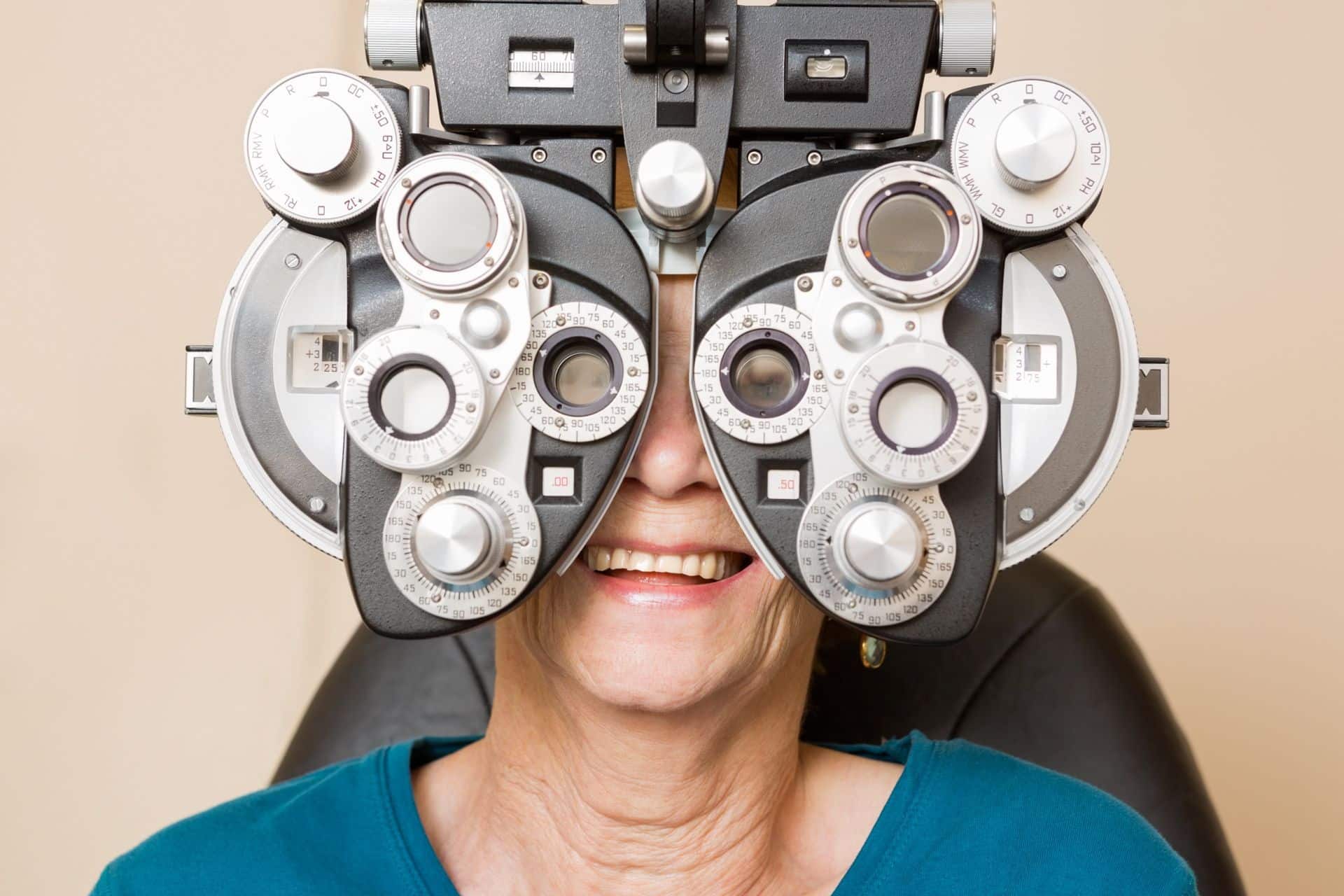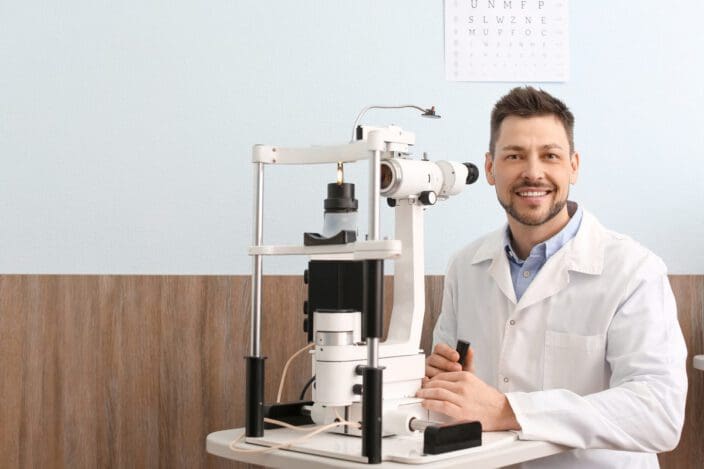Just how to Select the Right Ophthalmologist in Nabua for Your Eye Health And Wellness Requirements
Just how to Select the Right Ophthalmologist in Nabua for Your Eye Health And Wellness Requirements
Blog Article
The Value of Routine Exams With an Ophthalmologist
Routine examinations with an eye doctor play an important role in safeguarding one's vision and overall eye health. These analyses not only help with early recognition of potentially devastating problems but also make certain that any type of necessary modifications to therapy strategies are made in a prompt way. Additionally, the relationship constructed with an eye doctor permits tailored advice on eye treatment methods that can improve long-lasting end results. Nevertheless, lots of people stay uninformed of the specific advantages these sees give and the prospective repercussions of neglecting them. Comprehending this vibrant increases crucial inquiries regarding individual wellness monitoring.
Understanding Eye Wellness
Comprehending eye health is crucial for preserving overall well-being and protecting against prospective vision issues. ophthalmologist in nabua. The eyes act as our key ways of experiencing the world, making it important to prioritize their health and wellness. Routine eye evaluations play a crucial function in monitoring vision and spotting very early signs of eye diseases
Variables influencing eye health and wellness include genes, lifestyle, and environmental problems. Age-related changes can dramatically affect vision, necessitating enhanced caution as one ages. Appropriate nourishment, including vitamins A, C, and E, together with minerals like zinc, can contribute to preserving optimum eye feature. Furthermore, protecting the eyes from damaging UV rays and extreme screen time is imperative in today's digital age.
By understanding these elements, people can take positive procedures to safeguard their eye wellness. Focusing on eye health is not simply about vision; it is essential to boosting one's high quality of life.
Common Eye Problems
Identifying common eye conditions is essential for very early detection and efficient monitoring. Amongst one of the most common concerns impacting vision are refractive errors, consisting of nearsightedness (nearsightedness), hyperopia (farsightedness), and astigmatism. These problems arise from irregularities in the shape of the eye, leading to blurred vision that can commonly be fixed with glasses or get in touch with lenses.
Cataracts, identified by clouding of the eye's lens, generally develop with age and can substantially impair vision if left untreated. An additional constant problem is age-related macular degeneration (AMD), which impacts the main part of the retina, leading to vision distortion and problem in recognizing faces.
Glaucoma, typically described as the "quiet burglar of sight," is noted by raised intraocular pressure that can harm the optic nerve, leading to irreversible vision loss if not spotted early. Diabetic retinopathy is another severe problem, originating from diabetes-related damage to capillary in the retina, possibly causing loss of sight.
Prompt recognition and treatment for these conditions can reduce issues and maintain vision, underscoring the significance of regular analyses with an eye doctor.

Advantages of Routine Exams
Normal eye doctor Source exams play a vital duty in keeping eye health and wellness and preventing vision loss. These examinations enable the very early detection of numerous eye conditions, such as glaucoma, cataracts, and macular deterioration, which can result in irreversible vision problems if not identified immediately.
Moreover, regular exams promote the evaluation of general eye feature, making it possible for eye doctors to keep an eye on any kind of modifications in vision and readjust rehabilitative lenses or therapies accordingly. Routine examinations additionally add to the management of systemic health problems, such as diabetes mellitus and high blood pressure, which can substantially influence eye health and wellness.
In addition, these gos to offer a possibility for people to receive individualized suggestions on eye care and protective steps, such as UV defense and correct nutrition for eye wellness. Developing a constant partnership with an eye doctor makes certain that people are maintained notified about developments in eye treatment and treatment options.
What to Expect During an Examination
During an ophthalmologist examination, patients can expect a thorough analysis of their eye health and wellness. The consultation generally starts with a detailed medical background testimonial, where the eye doctor will ask about any vision troubles, clinical problems, and household history of eye illness. This information is important for tailoring the examination to the individual's requirements.
Following this, the eye doctor will conduct a additional hints series of examinations to analyze visual skill, which involves reading letters from an eye chart at numerous ranges. The assessment might likewise consist of refraction examinations to identify the proper prescription for glasses or contact lenses. Additionally, the medical professional will review the health and wellness of the eyes making use of a slit lamp, which provides a multiplied view of the eye's frameworks, consisting of the cornea, lens, and retina.
Pupil dilation is an additional usual treatment during the examination, permitting a thorough examination of the retina and optic nerve. Clients might experience short-lived blurred vision following extension, and sunglasses are usually advised for convenience. ophthalmologist in nabua. On the whole, the test is designed to recognize any kind of possible concerns early and make sure ideal eye health and wellness for the future
Just How Commonly Should You Go To?
Maintaining optimal eye health and wellness calls for a commitment to normal ophthalmologist check outs, which should be customized to specific requirements and threat variables. The regularity of these gos to can vary dramatically based on age, wellness condition, and certain eye conditions.

Furthermore, people with existing eye problems, such as glaucoma or diabetes mellitus, need to stick to a more frequent routine as encouraged by their ophthalmologist. Patients with a household history of eye illness might also require even more normal exams. Eventually, establishing a tailored routine with an eye doctor is important for positive monitoring of eye health and wellness and very early detection of prospective problems.
Final Thought
Routine examinations with an ophthalmologist play an important role in preserving eye wellness and stopping vision you can try here loss. Early detection of conditions such as glaucoma, cataracts, and age-related macular deterioration is crucial for efficient treatment and preservation of lifestyle. These analyses assist in prompt changes to prescriptions and offer individualized eye treatment suggestions. Establishing a routine connection with an ophthalmologist ensures extensive eye health and wellness administration and underscores the relevance of proactive steps in safeguarding vision.
Report this page